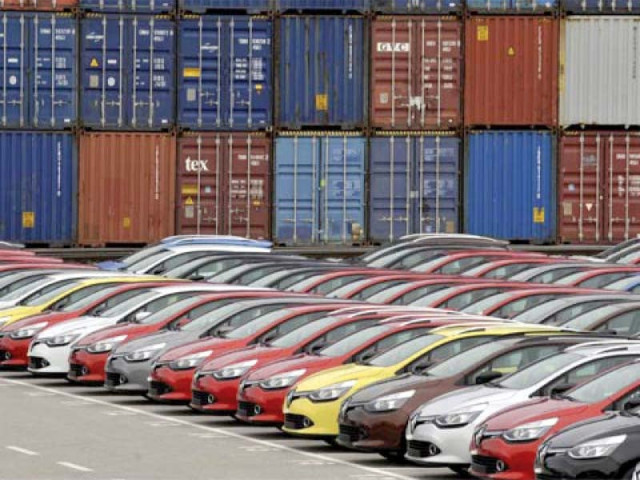Ban on luxury goods import sought
Businessmen term it need of the hour to avert economic crisis

The business community has urged the government to immediately put curbs on the import of luxury goods as the country is heading towards an economic chaos.
“Pakistan is heading towards economic crisis,” warned Employers’ Federation of Pakistan (EFP) President Ismail Suttar while talking to The Express Tribune.
Worsening balance of payments position, high inflation, depleting foreign exchange reserves and political uncertainty had led the country to an alarming economic situation, he said.
“It is devastating that Pakistan has been consistently facing trade deficit since 2003,” Suttar said. “Immediate action and implementation of strict policies to control the situation is the need of the hour.”
Pakistan definitely needed to curb non-essential imports, AL Habib Capital Markets Head of Research Fawad Basir emphasised. “It will help to a certain extent but this should be the starting point,” he said.
He pointed out that during July-March 2021-22, the completely knocked down (CKD) motor vehicle imports stood at $1.3 billion, while completely built unit (CBU) imports touched $240 million.
“If we just stop this, it will not only boost our local automobile industry but also reduce the impact on current account deficit (CAD) by around $1.5 billion,” he calculated.
Contrary to that, some experts were of the view that avoiding imports would be very difficult for Pakistan.
Pakistan Business Council (PBC) Chief Executive Officer Ehsan Malik underlined that most of the “imports are unavoidable at least in the short run – such as fuel, food, machinery, chemicals, medicines, etc”.
“Others are materials necessary for domestic manufacturing and exports, like cotton and man-made fibres,” he mentioned.
“That leaves a small portion of around 5% where import restrictions can work without hurting the economy,” he underlined.
That portion included mobile phones and vehicles in completely built-up form, Malik said, adding that dry fruits, pet food, etc were also included.
The curbs could range from high duty to outright ban, he said. “High duty will have limited effect as demand for these items is not elastic and will not diminish even with high rates of duty,” he pointed out.
Pakistan’s trade balance would benefit the most from dampening the demand for fuel, he noted. “A general subsidy makes fuel more affordable and works against curbing the demand,” he said.
Unisame President Zulfikar Thaver underlined that the “world is facing an economic crisis, including inflation, food shortage, expensive fuel, etc”.
“Only those countries which have reserves and have agricultural self-sufficiency will be able to manage the situation,” he said, adding that the developed nations were also feeling the pinch and hardships.
“A strategy is required to face these challenges,” he said. “Honest leadership is required at all costs.”
“In the past, we have seen the role of politicians and how they amassed wealth at the cost of the nation,” Thaver underlined, adding “we need to elect good leaders who are honest, otherwise it will be impossible to come out of the mess”.
AHL Head of Research Tahir Abbas was of the view that the country needed to impose financial emergency to curb non-essential imports, particularly the luxury goods, to save foreign exchange reserves.
Also, the government should allow four working days and one work-from-home day, as compared to five to six working days in order to curb petroleum demand and imports, he said.
In addition, market timings across the country should be revised – from 8am to 6pm – in order to save electricity, he added.
Published in The Express Tribune, May 18th, 2022.
Like Business on Facebook, follow @TribuneBiz on Twitter to stay informed and join in the conversation.



















COMMENTS
Comments are moderated and generally will be posted if they are on-topic and not abusive.
For more information, please see our Comments FAQ